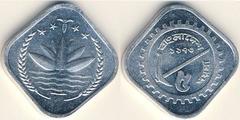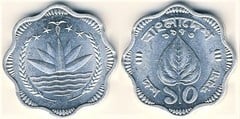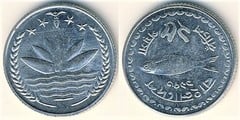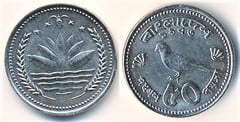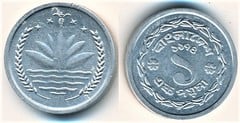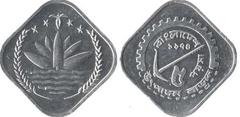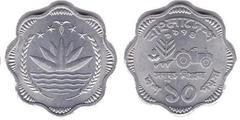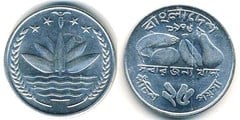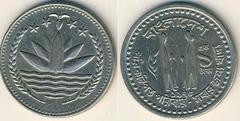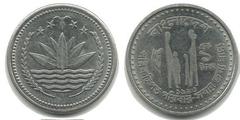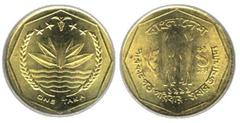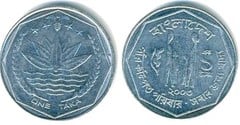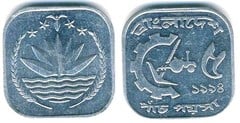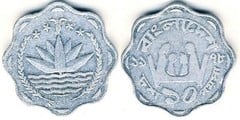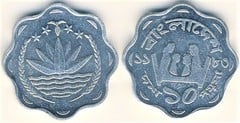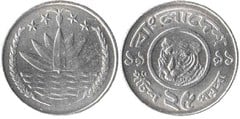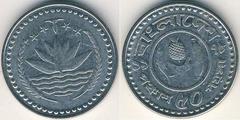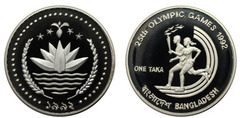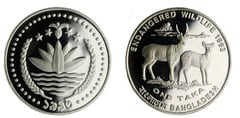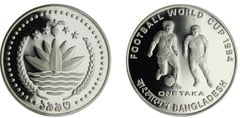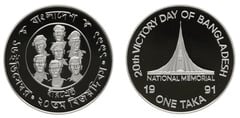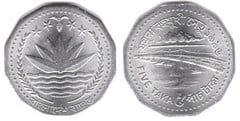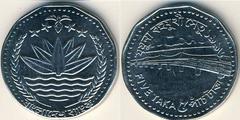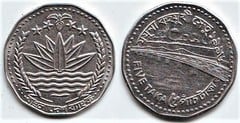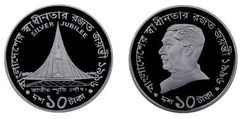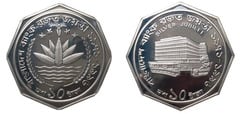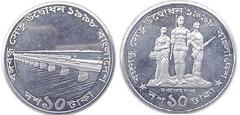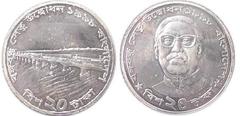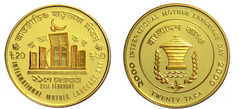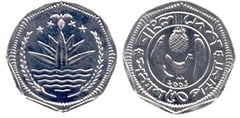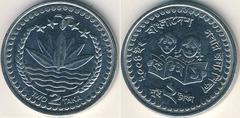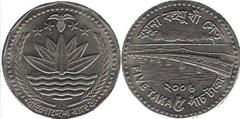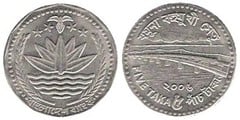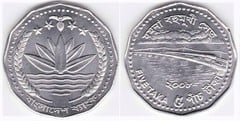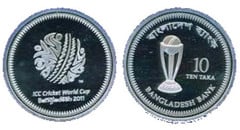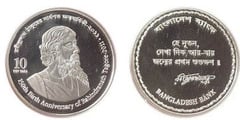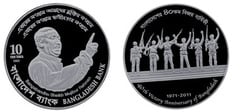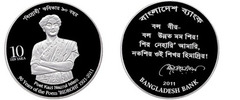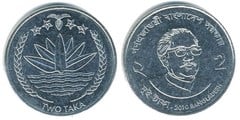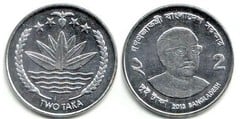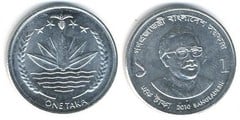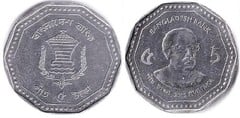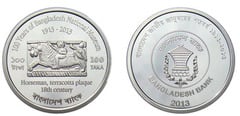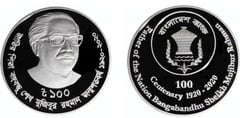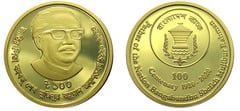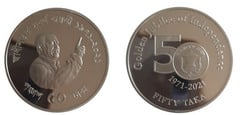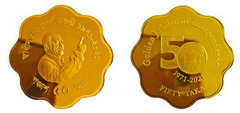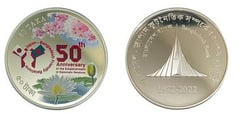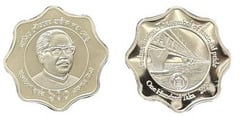Bangladesh Coins
Welcome to Bangladesh coin catalog collection gallery and price list, organized by the standard notation of the World Coin Catalog (#KM). Here, you will find detailed information and values for each coin including old coins from Bangladesh. To make your search even easier, you can filter by coin name in the top field. Discover the rich history and unique characteristics of 's coins and add to your collection today.
| KM#
| 1 |
| Years
| 1974, 1973 |
| Value
| $0.46 - $0.47 |
| KM#
| 2 |
| Years
| 1973, 1974 |
| Value
| $0.85 - $3.00 |
| KM#
| 3 |
| Years
| 1973 |
| Value
| $8.63 |
| KM#
| 4 |
| Years
| 1973 |
| Value
| $11.00 |
| KM#
| 5 |
| Years
| 1974 |
| Value
| $0.40 - $0.54 |
| KM#
| 6 |
| Years
| 1974, 1975, 1976, 1977 |
| Value
| $0.28 - $2.29 |
| KM#
| 7 |
| Years
| 1974, 1975, 1976, 1977, 1978, 1979 |
| Value
| $0.62 - $1.11 |
| KM#
| 8 |
| Years
| 1974, 1975, 1976, 1977, 1978, 1979 |
| Value
| $1.11 - $3.00 |
| KM#
| 9 |
| Years
| 1975, 1976, 1977 |
| Value
| $1.57 |
| KM#
| 9a |
| Years
| 1995, 1993, 1992 |
| Value
| $0.20 - $1.00 |
| KM#
| 9b |
| Years
| 1996, 1997, 1998, 1999, 2003 |
| Value
| $0.50 - $3.00 |
| KM#
| 9c |
| Years
| 2002, 2001, 2003, 2005, 2007 |
| Value
| $0.63 - $2.00 |
| KM#
| 10 |
| Years
| 1977, 1994, 1978, 1979, 1980, 1981 |
| Value
| $0.09 - $1.61 |
| KM#
| 11.1 |
| Years
| 1977, 1979, 1978, 1980, 1981 |
| Value
| $0.36 - $3.00 |
| KM#
| 11.2 |
| Years
| 1994, 1983, 1984 |
| Value
| $0.30 - $1.13 |
| KM#
| 12 |
| Years
| 1977, 1980, 1991, 1983, 1984, 1994, 1978, 1979, 1981 |
| Value
| $0.25 - $2.36 |
| KM#
| 13 |
| Years
| 1977, 1983, 1984, 1978, 1979, 1980, 1981, 1994 |
| Value
| $0.48 - $2.00 |
| KM#
| 18.1 |
| Years
| 1994, 1996 |
| Value
| $1.00 |
| KM#
| 18.2 |
| Years
| 1996 |
| Value
| $1.03 - $1.84 |
| KM#
| 18.3 |
| Years
| 1996 |
| Value
| $3.00 |
| KM#
| 24 |
| Years
| 2001, 2002, 2003, 2004, 2005, 2006 |
| Value
| $1.03 |
| KM#
| 25 |
| Years
| 2004, 2008 |
| Value
| $1.27 - $2.26 |
| KM#
| 26.2 |
| Years
| 2006 |
| Value
| $1.00 |
| KM#
| 26.3 |
| Years
| 2008 |
| Value
| $1.42 |
| KM#
| 31.1 |
| Years
| 2010 |
| Value
| $0.96 |
| KM#
| 31.2 |
| Years
| 2013 |
| Value
| $1.08 |
| KM#
| 32 |
| Years
| 2010, 2011, 2013, 2014 |
| Value
| $0.80 - $0.91 |
| KM#
| 33 |
| Years
| 2012, 2013 |
| Value
| $0.90 - $1.29 |
Investing in Bangladesh coins can be a great opportunity for coin collectors and investors alike. The rich cultural and historical heritage of Bangladesh is reflected in its coins, making them unique and valuable collectibles.
One reason why Bangladesh coins are attractive to investors is their rarity. Many Bangladesh coins were produced in limited quantities, making them difficult to find and increasing their value. Additionally, the historical events and political changes that have taken place in Bangladesh over the years have had a significant impact on its coin production, further adding to their rarity and collectibility.
Finally, the price of Bangladesh old coins is also influenced by their age and condition. Coins that are in excellent condition and date back to ancient times are often worth more than newer coins or those in poor condition.
